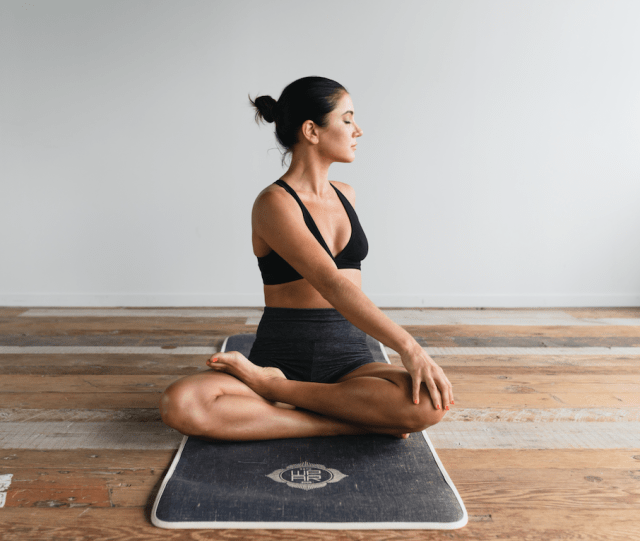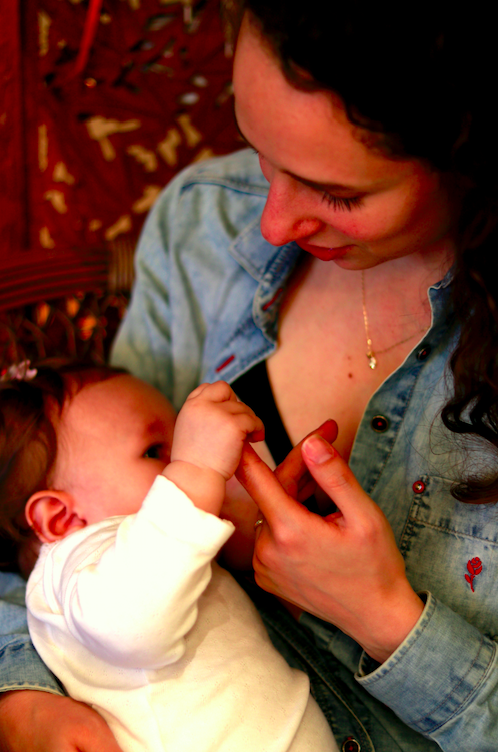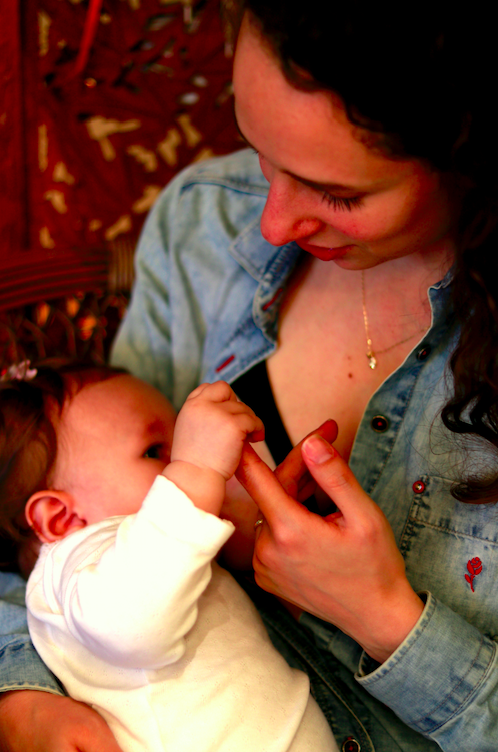Helicopter Parent: noun, informal noun: helicopter parent; plural noun: helicopter parents
- a parent who takes an overprotective or excessive interest in the life of their child or children.
This generation has seen the rise of a new kind of parent.
Gone are they days when wild children roamed neighborhoods in packs until the street light went up. Remember when kids walked to school with their lunchables (that they packed themselves)? What if they don’t have a winter coat? (Gasps in horror). Remember when our forgetfulness met a parental shrug and a “too bad, you’ll learn?”
Today’s kids are watched every moment, or else they get hurt. They may not make a mess, be cold, go outside without a grownup, make a mess, climb trees, make a mess… and in this over-calculated, over-planned, over-organized childhood we are stressing about for our kids, we are taking away that which makes childhood magical.
Our children today may not take risks.
They will never know cold. Our kids must be entertained, constantly. They can never go outside unattended. Our kindergarteners need to be fluently reading, adding and subtracting on worksheets—not playing. And God forbid they don’t: well then clearly the failure is the parents, not the system which forces children to grow up too fast.
But most importantly, today’s parenting style must be that of a helicopter hovering over every move. The helicopter parent cannot make a mistake, cannot fail their kids, cannot be seen as a “bad” parent.
The pressure to be perfect is too much.
It makes us hover. And it makes us worry. It makes us tired, both mentally and emotionally exhausted. So in our exhaustion, we snap, we yell or become impatient. We lose sight of what makes us smile. Laugh. Eventually, in the stress of trying to BE a good parent, we lose sight of what’s important. We focus on our parenting and not on our kids.
No wonder we feel like we are constantly failing our children.
You see, in the information age, with social media and the news and Google at our fingertips, millennial and Generation X parents aren’t just having kids: we are birthing a new style of parenting—the helicopter parent. And it’s hurting our children.
The problem comes when helicopter parents realize if they micro-manage their children’s environments, behaviors and choices, they can ensure their children are “making” safe choices. But the problem is, it isn’t the children’s choice at all.
Today’s kids aren’t learning to make their own choices, manage their own environments or discover outcomes (favorable or otherwise) based on their own behavioral choices, because they aren’t making those decisions themselves.
Pat Morrison, in her article “How Helicopter Parenting is Ruining America’s Children“, stated it best:
“When children experience a setback—they don’t know their homework assignment—that’s not your problem to solve. The best way for a kid to learn is to have that uncomfortable feeling, [to experience] consequences that are tiny in the grand scheme of things. Some will say something idiotic like, “Oh, my kid’s drowning, I’m just supposed to turn around?” Of course not. Where your child is in a situation potentially damaging to life and limb, of course you’re going to protect them. The trouble is we’re acting like everything is life or death.”
Why is it so important for these helicopter parents to make choices for their kids?
Why do they feel so much pressure to pack the perfect lunch, to style their kid’s hair just right, to hover on the playground? Pat makes a great point: it’s not an internal parenting conundrum—it’s society’s. Because in a world where people are calling the police for ten-year-old walking home from the park by herself, today’s parents must stay extra vigilant.
And it’s social media’s fault.
Social Media Influences Our Parenting Styles
Now, I love social media. As a childcare provider, I love having the ability to connect with other adults, share ideas with other providers and glean new ideas (particularly because the majority of my conversations occur with two-year-olds and I need an outlet for adult interaction!). In many ways, social media has made me a better parent and provider.
That said, Holy Information Batman! With all that information comes opinions. About. EVERYTHING. Misinformation, clickbait titles and parent-shaming have parents spiraling. As we scroll, we form opinions. This parent shouldn’t have done this, they could have done that. Can you believe she lets her kids eat at McDonalds? The horror! No first day of school pictures? What kind of mother is she?!
And so it spirals. And spirals. And spirals. Until we lose our village.
Because when we sit in silent judgment behind our phones, we feel it.
We feel the judgement of others, a heavy weight on our shoulders that begins to shroud every decision we make, whether we mean to or not. We see people tear apart the mom (even though dad was there, too) in every horrific case we read on Facebook. Remember the child who fell into the Gorilla exhibit in Cincinnati? The finger pointers really came out of the woodwork for that one.
Or worse, remember the child who was dragged off by an alligator at Disney? Remember how the social media trolls attacked the mother while the family was grieving? They shamed her: where was she, why did she let her child go so close to the lake? And on and on.
And for some reason, although dad was there, too (in both cases!), the fault always lands on mom’s shoulders. (But that’s a post for another day.)
It’s no wonder this generation is turning into a generation idolizing the helicopter parent.
Can you imagine grieving for your child while the rest of the world tears apart your parenting? I just CAN’T! Where did our kindness go? Where did our love and support go?
No one scolded and shamed Baby Jessica’s parents. It’s no wonder we have turned into a generation of perfection-obsessed helicopter parents. It’s not safe to be anything less. But there wasn’t Facebook then. Good point.
Here is what any parent can do to stop from becoming a helicopter parent.
1. Give our Kids Space to Explore
It was a lesson that I learned early on, although I often have to remind myself to take a step back. I ask myself, “Does this really matter?” It was my mother-in-law who taught me that one.
My first-born had crawled under the kitchen table and gotten stuck. I scrambled to remove my child’s unintended prison when my mother-in-law stopped me. “She got herself in there, she can get herself out.”
So I held my breath and waited—and sure enough, my Imp squirmed her way out and went on to explore other things.
This lesson has carried on into so much of my childcare philosophy. When toddlers who are barely walking attempt to climb the ladder on the playground, I step back, hold my breath, and let them go. And you know what? They can do it.
It’s amazing what our children are capable of when we give them the trust and independence to try. When we helicopter parent, we steal that sense of confidence from them. Encouraging children to take risks helps them to develop into strong, confident and capable adults. And isn’t that a goal we all want for our children?
2. Start Accepting Our Own Vaults
I admit this is my own personal Goliath. I see it in my daughter. My fears about failing her as a parent ooze out into the WAY I parent her. Slowly, like an out-of-body experience that I can’t stop, I watch how my judgement of myself as a parent eeks out into unintentional judgement of her.
I feel it, when I watch in horror as she refuses to cheer with the rest of her squad, when she tries tor run out to the bus without her beautiful wild curls brushed neatly, when she screams so loud that I’m certain our entire neighborhood can hear her.
When did I care so much about what other people think about my kid? About my parenting? It’s damaging my confidence as a woman, as a mom and as an example to my young and impressionable child.
The only way I can see to overcome this sense of guilt and shame is to accept it. Accept that my kid is human and developing impulse control and social emotional communication skills. Understand that I’m not a perfect parent, but if I love my kids and laugh at my faults, it’s a better lesson for my children than any perfect parenting technique I can carry out.
I have to trust that my children can make good and safe choices—if only encouraged and loved to do so—instead of being told. But honestly, the best thing we can do for our children is to stop hovering and start trusting ourselves.
3. Stand Up When You See Other Parents Belittled
I see it all the time on social media—constantly. Strongly-worded opinions pouring out on news articles and in parenting groups. “I would never!” “How could you?!” “That’s terrible!” Don’t scroll. Call it out. Call out the shamers. Make an open call to love and lift up one another. Support the struggling mom. It doesn’t matter if you disagree or if you think she’s wrong. Just. Be. Kind.
A good rule of thumb is: If you wouldn’t say this to someone’s face, don’t say it on social media either. Hiding behind a screen isn’t an excuse for cruelty or judgment. We just need to love each other.
Lifting the stigma of judgment and mom-shaming would go so much in building our confidence as parents and caregivers. It would encourage parents to have the confidence to not only trust themselves, but trust their children to learn and make their own mistakes.
After all, if we don’t set an example of love, kindness, curiosity and confidence, how can we impress that upon our children? If we lift each other up as parents, maybe we can stop helicoptering and fear-mongering over our children as well.
With over 10 years in childcare experience, Lauren's passion for lifting up moms and advocating for children pours through her work with Breastfeeding World and her daycare. Her life is full of busy, crazy and LOUD. Oh, and coffee—always lots of coffee—but she wouldn't have it any other way.




















